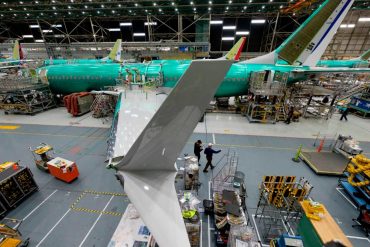Written by: Daniel Waldron and Sanwar AliEdited by: Sanwar Ali
The changes to the Tier 2 Sponsor Licence and Tier 2 visa scheme should benefit many employers and UK visa migrants. The expensive and bureaucratic and unjust system will become a little bit easier.
It remains to be seen how much difference the changes will make to the other visa schemes. The other visa schemes mentioned below are so difficult to come under that it will take very significant reforms to make much difference. It is also doubtful if these and other changes will adequately deal with the situation after Brexit (if it ever happens).
Several UK visa and immigration changes will be implemented in October 2019, the Home Office has announced. The most notable changes will occur across the Tier 2 (General) visa category, the UK startup and innovator visa schemes, the Tier 1 Exceptional Talent visa route and the EU Settlement Scheme.
The changes were originally announced on 9 September 2019, and they are expected to be rolled out on 1 October and 6 October, 2019. The most significant change is the expansion of the Tier 2 shortage occupation list (SOL), to which a number of new job roles will be added to tackle skills shortages in the UK.
Prior to his appointment as Chancellor of the Exchequer, former Home Secretary Sajid Javid had confirmed that all of the MAC’s recommendations for the SOL would be implemented. The expanded SOL is expected to apply to all Tier 2 visa certificates of sponsorship issued on or after 6 October, 2019.
Main changes to UK visa and immigration rules
Tier 2 (General) visa category
The Tier 2 (General) visa category features several changes. The Tier 2 Sponsor Licence and Tier 2 visa enables UK companies to sponsor skilled, non-European Economic Area (EEA) nationals for job roles in Britain. The number of Tier 2 visas that can be issued to those migrants living outside the UK is limited to 20,700 annually, which are split into monthly allocations. Approximately 2,000 Tier 2 visas are made available per month. There is no limit on employing migrants on Tier 2 visas who can apply from within the UK.
Employers and visa applicants are advised of the following changes:
The expansion of the Tier 2 visa shortage occupation list SOL to include architects, veterinarians and web designers, as recommended by the Migration Advisory Committee. The United Kingdom is covered by one list, while Scotland benefits from having additional occupations in a Scotland specific list.
People coming to the UK to work in occupations added to the SOL will receive priority in obtaining a Tier 2 visa, ahead of job roles not on the list. The new look SOL will be implemented on 6 October, 2019.
The removal of PhD level jobs from the annual Tier 2 (General) visa quota. PhD level occupations will no longer be subject to the requirement of a restricted certificate of sponsorship. This frees up places for other skilled roles that contribute to the UK economy in the monthly allocation process.
kAbsence from the UK counted towards Indefinite Leave to Remain (ILR) applicants will no longer apply to Tier 2 PhD level migrants involved in overseas research projects directly linked to their employment. Dependent partners accompanying the main Tier 2 visa holder will also be exempt from this rule.
Tier 2 migrants absent from work due to illness, statutory parental leave, assisting in a national or international humanitarian or environmental crisis or involved in strike action in a legal capacity, will not be penalised. This means Tier 2 migrants will not be refused ILR if an absence, like those mentioned above, results in their salary falling below the required threshold.
Tier 1 (Exceptional Talent) visa
The Tier 1 (Exceptional Talent) visa category is reserved for highly talented individuals in the areas of science, humanities, engineering, the arts, and digital technology who want to come to the UK without the need of sponsorship for specific occupations.
Applicants have to be endorsed by a Designated Competent Body. Tier 1 Exceptional Talent visa applicants seeking an endorsement from The Royal Society, The Royal Academy of Engineering, and The British Academy, are advised of the following changes coming into effect on 1 October, 2019:




